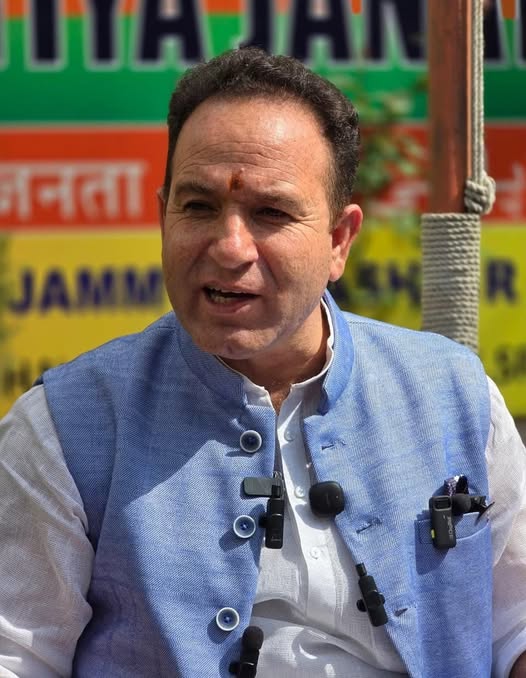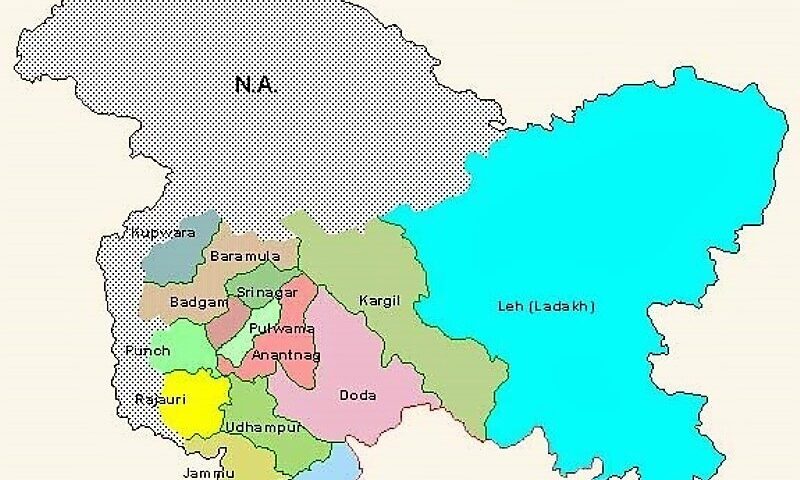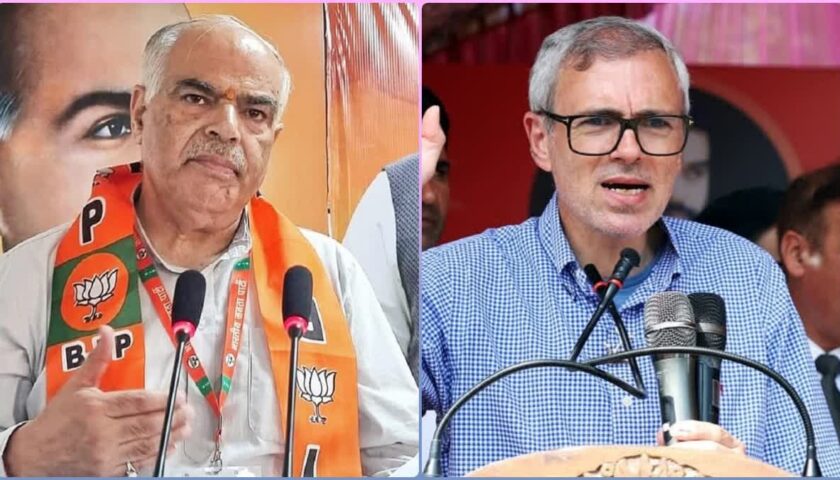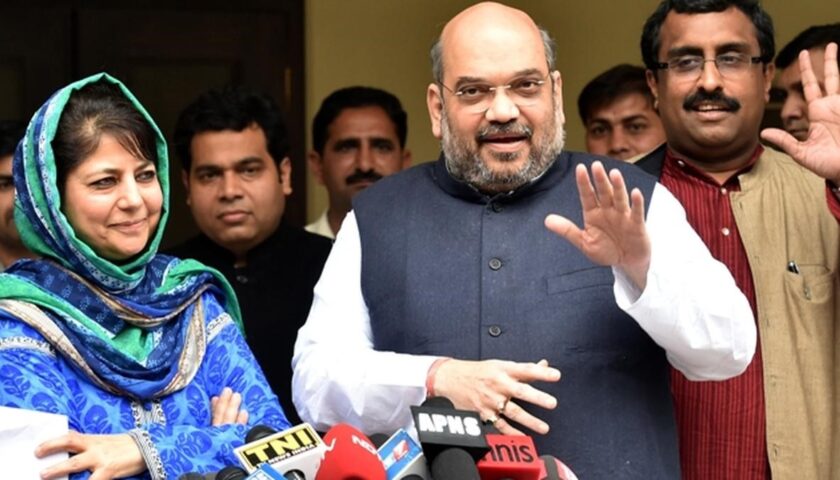A Fresh Political Pitch: “Vote for Future, Not Dynasties”
By: Javid Amin | 08 November 2025
As Jammu & Kashmir enters another crucial election cycle, BJP leader Sunil Sharma has urged voters to “choose the future over dynasties.”
His statement, delivered at a youth convention in Jammu, marks a notable shift in the BJP’s regional messaging — from confrontation to constructive reform and generational change.
“Jammu & Kashmir’s youth must not inherit political burdens shaped by dynastic rule,” Sharma declared.
“Vote for the future, not for families.”
This line has quickly become a rallying cry for the BJP’s campaign machinery, aiming to contrast the party’s “national vision” with the legacy-driven politics of the National Conference (NC) and Peoples Democratic Party (PDP).
Targeting the Old Guard: Abdullahs and Muftis in the Crosshairs
Sharma’s remarks clearly target the two traditional powerhouses of Kashmir politics —
the Abdullah family, which leads the NC, and the Mufti family, at the helm of the PDP.
For decades, both parties have alternated power in J&K, often presenting themselves as protectors of Kashmiri identity and autonomy.
But according to Sharma, this cycle has bred stagnation, entitlement, and corruption.
“For seventy years, they’ve made promises wrapped in emotion,” Sharma said.
“But emotion doesn’t build jobs, roads, or universities. Action does.”
By invoking dynastic fatigue — a sentiment increasingly echoed among younger voters — Sharma positions the BJP as the party of opportunity, merit, and governance.
Youth-Centric Messaging: A Call for Generational Shift
Central to Sharma’s appeal is the youth vote, which makes up nearly 65% of Jammu & Kashmir’s electorate.
The BJP’s campaign narrative now leans heavily on themes of employment, education, and empowerment.
-
Employment: Promises of startup incubation zones, skill training, and cross-border trade corridors.
-
Education: Focus on AI, tech institutes, and scholarships for rural students.
-
Empowerment: Integrating youth into local decision-making and district-level planning.
“We don’t need the politics of inheritance; we need the politics of innovation,” Sharma said, drawing applause from students and young professionals.
This emphasis on “future politics” reflects a broader BJP strategy — to undercut NC and PDP’s emotional appeal by promoting a technocratic vision of progress.
Development Over Nostalgia: BJP’s Counter-Narrative
In his address, Sharma contrasted BJP’s “development narrative” with what he called “nostalgic manipulation” by regional parties.
“They talk of 1953 and 1975. We talk about 2025 and 2050,” he said.
“Our goal is not to rewind history but to redesign the future.”
He cited recent infrastructure milestones — such as the Udhampur–Srinagar–Baramulla rail link, AIIMS Jammu, and renewable energy projects in Kishtwar — as tangible evidence of the BJP’s focus on connectivity and growth.
The pitch is clear: while others debate the past, the BJP builds the present.
A Softer Tone on Statehood and Article 370
Interestingly, Sharma also signaled a more conciliatory stance on Jammu & Kashmir’s constitutional status.
“If Omar Abdullah wants only statehood without Article 370, we are on the same page,” he remarked.
This is significant. For years, BJP’s hardline narrative emphasized the irreversibility of Article 370’s abrogation.
Sharma’s statement suggests a pragmatic shift — acknowledging the popular demand for statehood restoration, even as the party maintains its national integration line.
Analysts interpret this as an attempt to broaden BJP’s acceptability in the Valley, where public sentiment remains wary of central overreach.
Strategic Messaging: Aligning Regional and National Narratives
Sunil Sharma’s remarks mirror the BJP’s national campaign strategy — attacking dynastic politics while projecting itself as the party of accountability and meritocracy.
-
In Delhi, Modi targets the Gandhi family.
-
In Kashmir, Sharma targets the Abdullahs and Muftis.
The alignment ensures message coherence — a unified “anti-dynasty” rhetoric tailored to local contexts.
Political observers note that such framing allows BJP to:
-
Discredit opponents without alienating neutral voters.
-
Shift focus from controversial issues like security and autonomy to governance and opportunity.
-
Engage youth through a positive, aspirational lens.
Ground Impact: How Voters Are Reacting
Early feedback from Budgam, Jammu, and Kulgam indicates that Sharma’s rhetoric is resonating, particularly among first-time voters who feel disconnected from older political narratives.
A 22-year-old student from Srinagar said:
“We respect our leaders, but it’s time someone spoke about jobs and future — not just emotions.”
However, veteran voters remain cautious, noting that development promises often fade after elections.
Still, BJP’s focus on merit over lineage has opened new conversational space in a region long dominated by family loyalties.
Analysts’ Take: Reframing the Political Spectrum
Dr. Rehana Mir, political analyst at Jammu University:
“Sharma’s speech marks a new phase in BJP’s Valley strategy — from confrontation to co-optation. They’re reframing the identity debate into a development debate.”
Prof. Irfan Malik, columnist and historian:
“The ‘Vote for Future’ slogan is smart. It taps fatigue with dynasties but doesn’t alienate traditional voters. It’s emotional intelligence disguised as electoral pragmatism.”
Implications for NC and PDP
For Omar Abdullah and Mehbooba Mufti, Sharma’s challenge strikes at their core legitimacy — the hereditary continuity that has long defined Kashmiri politics.
-
NC has defended its dynasty as “continuity of service.”
-
PDP argues that family legacy ensures “trust and accountability.”
But BJP’s narrative reframes that legacy as a liability, not an asset — a move that forces both parties to justify their relevance to younger voters.
Looking Ahead: The Battle of Generations
As the 2025 bypolls and 2026 Assembly elections draw near, the political battlefield in Jammu & Kashmir is being redefined along generational lines rather than ideological ones.
The question is no longer just “Who will restore statehood?”
It’s “Who can deliver a future worth staying for?”
Sharma’s slogan — “Vote for Future, Not Dynasties” — captures that sentiment, serving as both a critique of the past and a blueprint for the BJP’s forward-facing campaign.
Bottom-Line: Breaking the Cycle
Sunil Sharma’s remarks encapsulate a broader transformation in J&K’s political vocabulary — away from family legacies and emotional appeals toward policy-driven accountability.
Whether this message translates into votes remains to be seen, but one thing is clear:
the era of dynasty-dominated politics in Jammu & Kashmir is being openly challenged — and the next generation of voters holds the final word.




